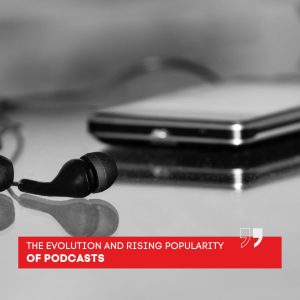
Podcasts Through Languages
Language is essential to a successful podcast. Just like age, language tends to change and evolve. To deliver a successful episode, you need to understand how to use language effectively.
In this article, we’ll uncover tips to ensure rising viewership by tailoring your language to your audience. From tone and style to emotional connection and brand identity, these insights will help you connect with your listeners and stand out in the podcasting world.
Why Language Matters in Podcasting
Language is more than just words—it’s a tool for building connections. Each age group uses a different language to communicate, and if you want to reach your listeners, you need to understand them and start talking like them.
For example, in recent years, we’ve seen the rise of Gen Alpha slang—a language that might sound like gibberish to older individuals but makes complete sense to younger audiences. So, how can you use language to raise the popularity of your podcast? Let’s dive in!
1. Tone and Style: Speak Your Audience’s Language
Using a language that fits your audience’s culture is crucial. The tone and style of your speech need to resonate with your target listeners.
Casual vs. Formal Tone
- A casual, conversational tone with some slang words works well for younger audiences. This makes your podcast relatable and engaging for them.
- An academic or older audience might prefer a more formal tone with relevant language and terminologies.
Adapting to Your Audience
There are multiple styles of speech, and each can attract a specific demographic. It’s extremely important to know who your audience is and what style of speech suits them best.
2. Clarity and Accessibility: Keep It Simple
Podcasts are typically heard on the go—no one is sitting at a desk with a pen and paper, ready to take notes. With that in mind, it’s important to be clear and concise with your wording..
Avoid Overly Complex Language
- Use simple, straightforward language to ensure your content is accessible to a broader audience.
- Avoid confusion by steering clear of overly complex terms or jargon.
Inclusive Language
- Using inclusive language makes your podcast known for respecting diverse identities and experiences.
- This helps build a welcoming and supportive community around your podcast.
3. Emotional Connection: Storytelling is Key
One of the most effective ways to connect with your audience is through storytelling.
Personal Stories
- Share personal experiences to create an emotional bond with your listeners.
- This helps your audience resonate with your content and makes your podcast feel authentic.
Metaphors and Vivid Descriptions
- Use metaphors and vivid descriptions to engage your listeners.
- This makes your content more relatable and helps your audience feel closer to you as a host.
4. Brand Identity: Create a Unique Voice
Your podcast’s language can help establish a strong brand identity.
Catchphrases and Sound Effects
- Develop a catchphrase or unique sound effect that’s exclusive to your podcast.
- This creates a recognizable brand and makes your show stand out.
Host Personality
- Let your personality shine through your language.
- A distinctive voice and style can make your podcast unforgettable in a competitive market.
Importance of Language in Podcasting
Language is a powerful tool for podcasters. By tailoring your tone, ensuring clarity, building emotional connections, and creating a unique brand identity, you can engage your audience and grow your podcast.
If you’re struggling with your podcast, reach out to the PodMedia Network team and book a consultation! Not only will they help you with the production of your podcast, but they’ll also provide detailed guidance—from choosing the right name and theme to distribution and publishing.



